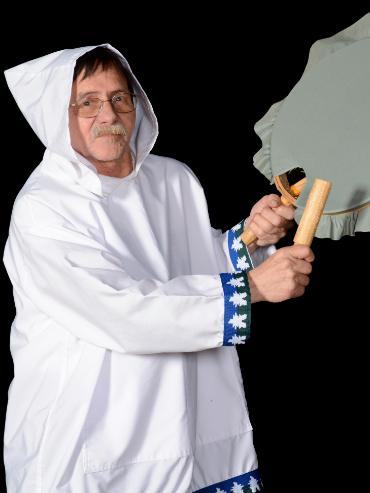Learning in Labrador
Over generations of colonial settlement, education in Labrador became fragmented, under-resourced and often ill-suited to the lives and needs of its Indigenous peoples.
Students were sometimes sent far from home. The curriculum was imported and ignored Indigenous ways of knowing and cultural practices. Teachers frequently didn’t understand or respect local cultures, and the pathways to post-secondary education were narrow and difficult at best.
These early and long-standing problems laid the foundation for a struggle to realize an educational system that could truly serve Labrador Inuit, Innu and other Indigenous communities.
Over time, Indigenous leaders have come forward to advance the cause of education in Labrador. And one of those leaders is Dr. Timothy McNeill.
He was born and raised in the Inuit community of Makkovik. After attending the residential school in North West River, he studied at Memorial University and Mount Saint Vincent University.
When he returned to Labrador, he worked as an outreach worker with the Labrador Friendship Centre in Happy Valley-Goose Bay and as a health career counsellor with the Labrador Inuit Health Commission.
In 1990, he joined the Labrador Inuit Association as an education advisor. And his work was central to the Labrador Inuit Land Claims Agreement signed in 2005. He played a key role in weaving education and training into the framework for self-government.
When the Nunatsiavut Government was created, Dr. McNeill was named deputy minister of Education and Economic Development. And from that office, he became one of the architects of a new vision for learning in the North.
-1280x640.jpg)
Leaders assembled. From left to right: Elder G. Jean Crane, Tim McNeill, Patty Way and Elder Elizabeth Penashue. Photo from Labrador Campus.
Under his leadership, schools in Nunatsiavut began to integrate Inuktitut and Inuit life skills into the provincial curriculum.
His efforts helped shape Memorial University’s presence in Labrador as well. As the Labrador Institute grew into today’s Labrador Campus, his advocacy for place-based, culturally relevant education helped set a clear direction.
He was instrumental in shaping the Inuit Northern Nursing Program, the Inuit Bachelor of Social Work Program and later the Inuit Bachelor of Education Program. That education program, the first of its kind in Canada, includes Inuktitut training so graduates leave not only as teachers but as carriers of language and culture.
He helped show how Memorial could serve Labrador not from afar, but from within.
It was a bold answer to decades of assimilationist schooling. And it clearly stated that Indigenous learners deserve classrooms where their culture is not erased but strengthened.
Dr. McNeill also looked outward, linking Labrador Inuit education to wider networks. He was a founding member of the National Committee on Inuit Education, which produced the National Strategy on Inuit Education.
He has also played a role in major training partnerships tied to resource development projects, ensuring Inuit workers have a place in emerging economies.
In every forum, he has argued that education is not a gift from outside but a right grounded in self-determination.
He received an honorary degree from Memorial in 2019 for his steadfast leadership in promoting and advancing Indigenous education.
Today, there are more Inuit learners in post-secondary classrooms, more culturally grounded teachers and professionals and a growing sense that education in Labrador is something that belongs to the people who live there.
